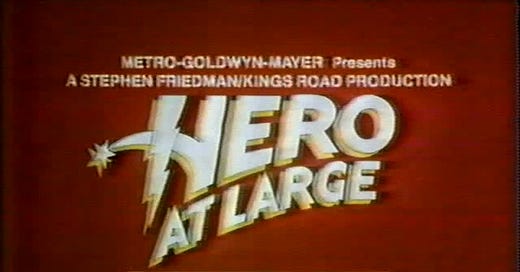“That we wanted to provide role models for boys and girls. That we wanted children to not have to limit their heroes to just male athletes but that women of achievement in all different fields could also serve as role models, and to teach children about the contributions of women to our society.” -Barbara Egerman, cofounder of supersisters™
As an archival organization, The Feminist Institute strives to preserve everything we can find. Unlike some of the mediums of other ephemera that have become things of the past, news segments are still alive and kicking. During The Feminist Institute’s visit to Indianapolis just last year, WISHTV-8 did a segment on the partnerships between supersisters™ and TFI. This segment was not merely good exposure, but now allows us to compare the kind of coverage supersisters™ got in 2022 versus the 1980 segment of the Today Show. Nearly forty-three years later, it encapsulates a piece of what supersisters™ meant to Melissa Rich, Lois Rich, and Barbara Egerman in those first couple years. This was after the second printing, when Melissa was only nine years old. Without keeping ephemera such as this, we would miss out on vital opportunities to understand the culture and context of a time gone by.
1980 vs 2022
Barbara and Lois accomplished a project in 1979 that even today would require vast amounts of research effort. And yet, with the World Almanac as their trusty guide, they researched and contacted five hundred women, released and distributed the cards to various schools, and were contacted a year later by the Today Show.
Newscaster Tony Guida lays us a scene that mirrors the worries of many people still today. Guida states, “Considering all the things to think about these days, rampant inflation, crises in foreign lands, presidential candidates, bountiful and bombastic, you probably haven’t been spending much time thinking about trading cards.” This statement rings true today, but in 1980 many people watching probably had memories of their own or their friends’ trading cards. Guida mentions athletes who were on trading cards, such as Reggie Jackson, Terry Bradshaw, Phil Esposito, and Kareem Abdul-Jabbar. Many people today don’t think about trading cards simply because they’re things of the past. While some card-based games, such as Pokémon, have turned into trading cards, trading cards as their own category have gone down in popularity. They’ve strayed from something kids pursue and into collectors’ territory.
Today, Rosa Parks is usually spoken of in the same breath as Martin Luther King Jr., especially when being taught in schools. However, Barbara makes a point to state, “I think the [card] that we’re most proud of is Rosa Parks, the Civil Rights leader. They’ve all heard of Martin Luther King, and yet here’s a woman, who by one really brave and courageous act, started everything happening.” Barbara highlighting Rosa Parks because she felt like she didn’t get enough recognition, not simply because of her amazing work, is astounding to me because of how highly people regard her now. The Civil Rights movement was still recent memory for 1980; in our own current events, fights for racial justice and equity are still headline news.
The difference between the newscasters of 1980 and 2022 is one of the biggest signs of cultural change. The way the news segments were conducted and what was talked about differ slightly yet remarkably. “Lois Rich and Barbara Egerman have given me an idea,” Guida said. “Sure, we men have male athletes on the trading cards, and we have a gaggle of presidents on our currency, but what about the rest of us? How about superbrothers?”. And then we have the comments on Jane Pauley’s card. Pauley’s card features a glowing picture of her staring into the camera, and while no comments made by the newscasters were crass, the focus on her looks and not her work is noticeable. Even little Melissa says Jane Pauley is her friends’ favorite card because “everyone thinks she’s really pretty”.
Archiving Yesterday for Today and Today for Tomorrow
We could look at the 1980 segment in a cynical manner, saying Tony Guida was just putting the focus back on men. But we could also acknowledge that he seems to share young Melissa’s desire, for himself and for boys, to see men in professions other than famous ones. Common men. At first glance, the focus on appearance over achievement can be discouraging, yet contrast it with WISHTV-8’s segment focusing on the historical significance of the cards and the efforts to preserve this piece of history and a little perspective is gained. As TFI’s Archives and Special Projects Coordinator Allison Elliott says in WISHTV-8’s segment, marginalized groups are becoming the focus of archives now, and there’s hope in that progress. The hope for society is the hope for the reach and scope of feminism as well. Women may still be fighting for equal pay, but it’s less common for women to be objectified on national news. The fight for equal and equitable treatment moves forward with the backing of more and more people. And as it garners more support, more archival efforts can be made.
This sort of nuanced view is why preserving historical records such as news segments is so integral to archival work. Without being able to see the cultural context, it can be difficult to really understand why the work being done was important. But seeing the context in which the work was done allows archivists and people from a different time to better understand the people who came before them. As a better understanding is grown in today’s archivists, the hope for tomorrow’s archivists, for tomorrow’s archiving initiatives, for tomorrow’s equity, it all only grows.
---
While this series on supersisters™ is coming to a close, keep an eye out for blogs focusing on other equally as important archiving partnerships and projects.






Share this post